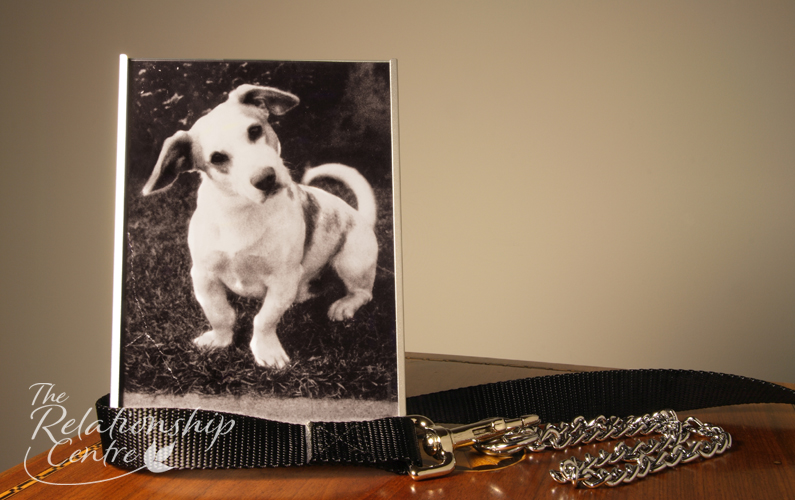Pet loss grief can be substantial when a family has to say goodbye to their much-loved friend. Experiencing the loss of a pet, whether you’re feeling the grief alone or there are others involved, can hurt a lot deeper than we expect. This is all the truer if your pet dies unexpectedly or tragically. Your non-human companion becomes a valuable part of your family, and they are irreplaceable after all.
In his “Psychology Today” article entitled Experiencing the Loss of a Pet (Why the passing of our non-human companions can be so painful), Luke Smillie Ph.D. shares the following:
“Our pets fill our home-life with their presence and in their absence, our homes don’t feel the same; our routines fall apart. It is striking to think that many of our human friends and family members aren’t part of our daily lives in quite this way. As a result, the loss of a pet can affect us in ways we don’t expect.”
Smillie brings up a critical point: some human relationships don’t positively impact us like our pet’s connection. This is why those experiencing grief after pet loss are often surprised by the depth of sadness they experience. Are you wrestling with the recent loss of a pet? If so, here are some thoughts on coping with pet loss.
Keep in Mind Everyone in Your Family Will Grieve Differently
You may live alone. In that case, you’ll primarily have to work through your own grief (no small task by any means). However, if you have a partner and/or children, the pet bereavement process may be more complicated.
On the one hand, it can be comforting to share grief’s burden together. You’re all going through a similar struggle, after all. At the same time, keep in mind that each of you will handle losing your pet differently. One person’s grief may be obvious, while another may hold it inside. Also, one’s grief may last longer and be more severe than another’s.
Grief must run its course. Those struggling with it can be as bewildered by their feelings as others in the family may be when witnessing them. Although grief can be shared to some extent, it is an individual journey too. For instance, no one else but your young son will know what losing his pet means to him. For that reason, do your best to be sensitive to each other as you go through this process.
Remember Those Outside of Your Family May Not Understand
Individuals outside of your family may not relate to your grief and sadness over losing a pet. Unfortunately, that’s pretty common. Although that can make your heart hurt all the more, remember that others’ views don’t invalidate how you’re feeling.
Often, it’s not that people are intentionally trying to be insensitive. Especially for individuals who don’t own pets, the thought that a family would genuinely grieve the loss of a pet can be challenging to understand. That’s where finding people who do relate to what you’re going through can be healing. For that reason, consider joining a pet loss support group in your area or online if you continue to struggle.
Be Careful Not to Downplay Your Pet Loss Grief
It’s extremely common for those dealing with the loss of a pet to downplay their sadness. These generally unsuccessful attempts to minimize pet grief only make it more challenging.
You may think, “It was just a dog or cat. So, why am I so sad?” What’s wrong with me?” If you have these thoughts, nothing is wrong with you—how you’re feeling is very common. We tend to think our grief is too great when grieving the loss of a pet. The natural response is to worry about why we feel so strongly and why it hurts so badly.
Society tends to minimize pet loss, which likely is why you’re tempted to do the same. When sufferers experience pet loss in a society that downplays their depth of pain, this is referred to as disenfranchised grief. This lack of grief validation can make the process much more painful.
For example, you wouldn’t feel bad about taking some time off from work after the death of a close friend or family member. However, you may feel like you can’t do this after losing your non-human companion, for instance.
Society tends to view pets as possessions rather than companions. However, losing one is not like losing your car keys. Instead, you lose a friend—a loyal, innocent friend not capable of hurting you as human friends can at times.
Use This Moment as a Teaching Tool
Especially if you have young children, the loss of your pet could be their first significant experience with death. While the youngest children will struggle to grasp the permanence of death, your older children will feel the entire weight, perhaps in a way they never have before. This can be an excellent teaching moment and a vital part of healing.
In many societies, past and present, death was a far more visible part of life. Families would prepare and bury their own dead in many cases. And while that may seem unpleasant or even disturbing to our western cultural mindset, it, in all likelihood, provided a form of closure that is hard for us to grasp.
In Western societies, we are generally very insulated and protected from death. First, modern medicine is better than ever at eliminating human illness and suffering while increasing life expectancy. From hospitals to funeral homes, much of the process is taken care of for us. While there certainly are some advantages to this, there are also some notable downsides.
Amazingly, we can go through large stretches of life almost forgetting that death exists and that we all must eventually die. This would have been largely unthinkable during most of world history. One danger of being so insulated from death is that when someone close to us dies, it can be even more shocking. It can almost feel like the impossible has happened. This can make the grief process much more difficult to handle.
Through the death of your pet, you can teach your children that death happens to all animals and people. It’s a great chance to mentally prepare your child for inevitable future encounters with death. It’s also an excellent opportunity to remind your child of the beauty and gift of life. You can encourage your child to cherish their life and others’ lives, remembering life is short, precious, and fragile.
Encourage Others Not to Blame Themselves
The finality of losing a pet can be heavy for children and adults alike. It can be easy to beat yourself up about losing your pet. If your child helped to oversee your pet’s care, they may feel like the death is their fault.
This feeling of being responsible can be a heavyweight for anyone to bear but especially for children. For that reason, do your best to discuss with your child why the passing of your beloved pet is not their fault.
Consider Grief and Loss Therapy
Could you benefit from pet grief support through therapy? Whether you’ve lost a beloved pet or a close person in your life, the grief process individuals go through is often very similar. If you or someone close to you is struggling with loss, grief therapy can make a positive difference. Your therapist is well trained in how grief works, what to expect and how to help you work through it healthily.
If you’d like to learn more about how The Relationship Centre can assist you, please feel free to contact us. You can also get in touch to schedule an appointment. Online grief counselling (video therapy) is also available if that would be a better fit for you.














